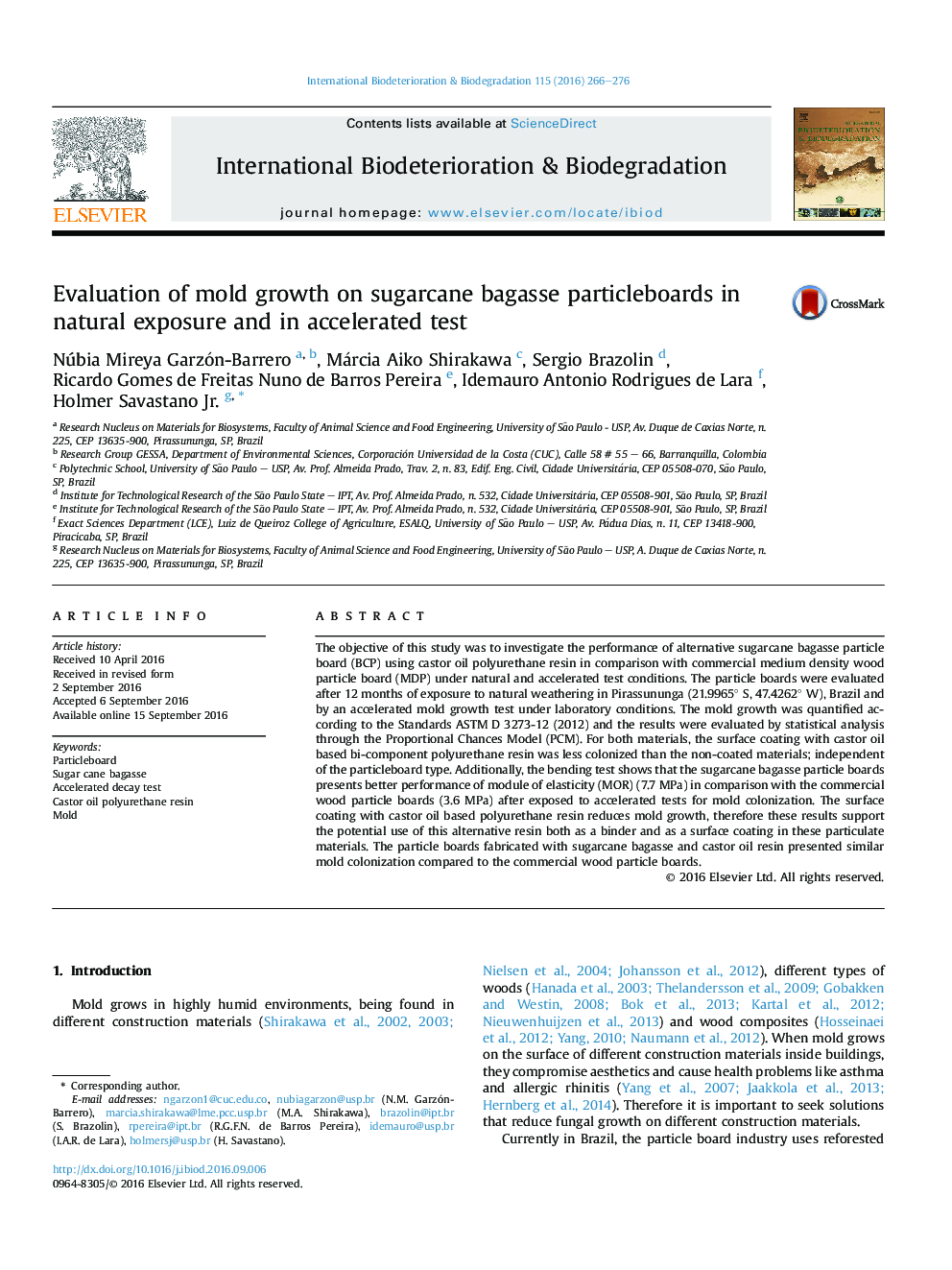| Article ID | Journal | Published Year | Pages | File Type |
|---|---|---|---|---|
| 4364186 | International Biodeterioration & Biodegradation | 2016 | 11 Pages |
Abstract
The objective of this study was to investigate the performance of alternative sugarcane bagasse particle board (BCP) using castor oil polyurethane resin in comparison with commercial medium density wood particle board (MDP) under natural and accelerated test conditions. The particle boards were evaluated after 12 months of exposure to natural weathering in Pirassununga (21.9965° S, 47.4262° W), Brazil and by an accelerated mold growth test under laboratory conditions. The mold growth was quantified according to the Standards ASTM D 3273-12 (2012) and the results were evaluated by statistical analysis through the Proportional Chances Model (PCM). For both materials, the surface coating with castor oil based bi-component polyurethane resin was less colonized than the non-coated materials; independent of the particleboard type. Additionally, the bending test shows that the sugarcane bagasse particle boards presents better performance of module of elasticity (MOR) (7.7 MPa) in comparison with the commercial wood particle boards (3.6 MPa) after exposed to accelerated tests for mold colonization. The surface coating with castor oil based polyurethane resin reduces mold growth, therefore these results support the potential use of this alternative resin both as a binder and as a surface coating in these particulate materials. The particle boards fabricated with sugarcane bagasse and castor oil resin presented similar mold colonization compared to the commercial wood particle boards.
Keywords
Related Topics
Life Sciences
Environmental Science
Environmental Science (General)
Authors
Núbia Mireya Garzón-Barrero, Márcia Aiko Shirakawa, Sergio Brazolin, Ricardo Gomes de Freitas Nuno de Barros Pereira, Idemauro Antonio Rodrigues de Lara, Holmer Jr.,
